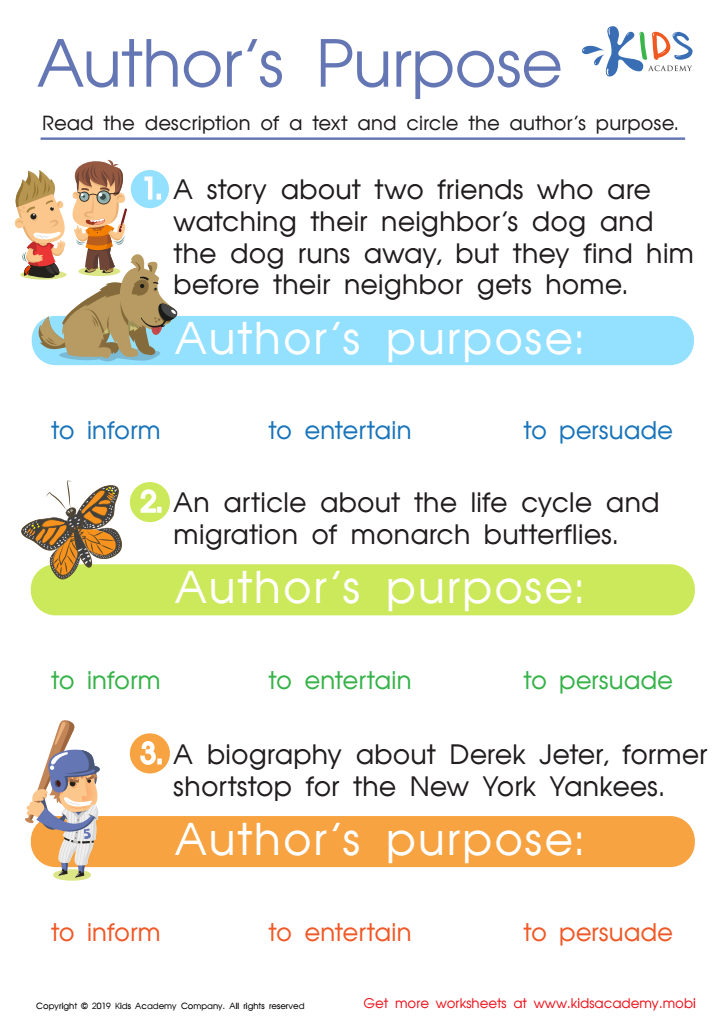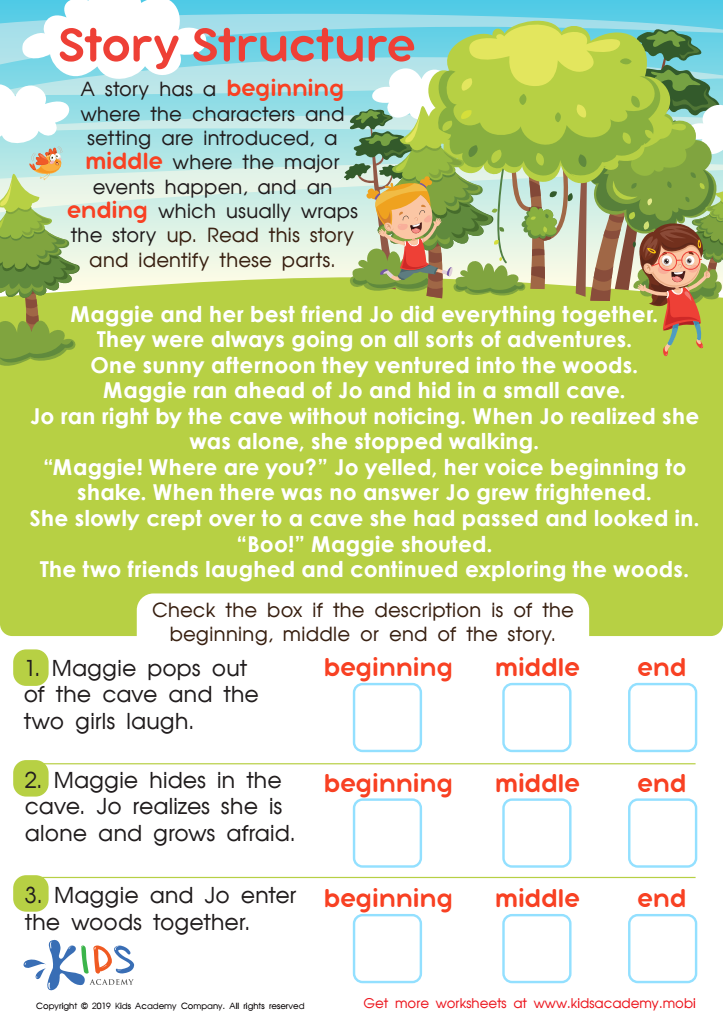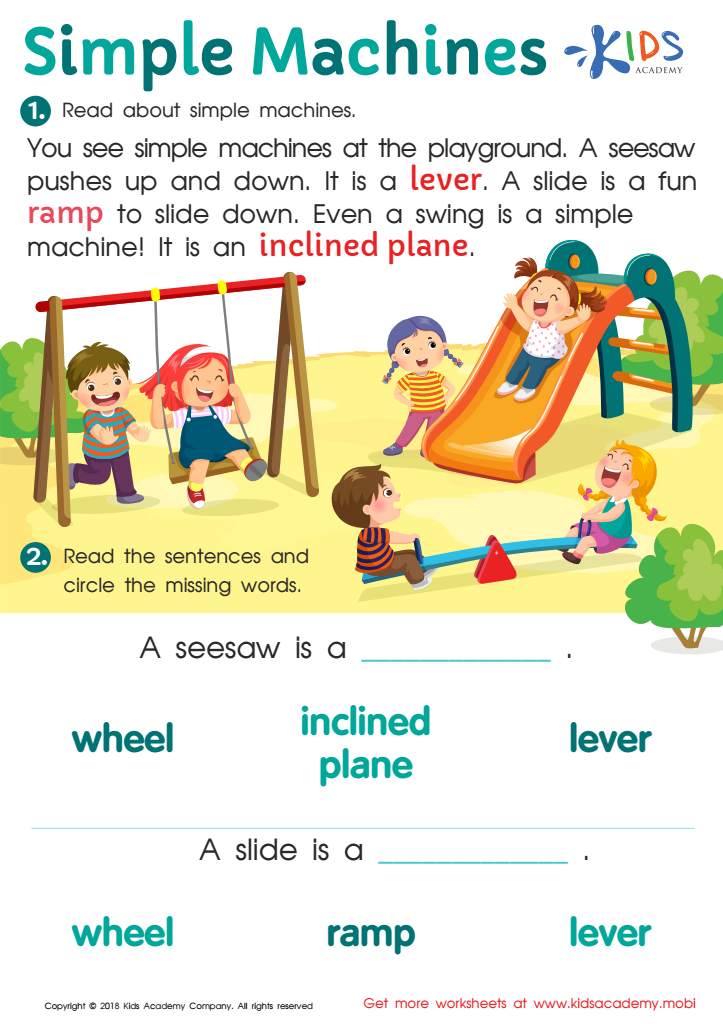Developing analytical skills Normal Reading Worksheets for Ages 4-7
3 filtered results
-
From - To
Enhance your child’s analytical skills with our engaging Normal Reading Worksheets designed specifically for ages 4-7. These worksheets integrate reading comprehension with critical thinking exercises to help young learners develop essential analytical abilities. Children will engage in fun learning activities that encourage them to evaluate information, make connections, and derive conclusions from texts. With vibrant illustrations and age-appropriate content, our worksheets keep kids motivated while nurturing their cognitive development. Perfect for both home and classroom use, these resources are ideal for fostering a love for reading while sharpening analytical thinking skills crucial for future academic success. Start your journey today!


Author's Purpose Worksheet


Story Structure Worksheet


Simple Machines Worksheet
Developing analytical skills in young learners, particularly during the formative ages of 4-7, is crucial for their overall cognitive development and future academic success. During these critical years, children are like sponges, absorbing information and forming foundational skills that they will build upon throughout their lives. Analytical skills involve the ability to think critically, solve problems, and evaluate information, all of which are essential for effective learning.
Teachers and parents should care about fostering these skills through activities that encourage exploration and inquiry. Engaging children in conversations about stories, asking open-ended questions, and encouraging them to predict outcomes enhances their comprehension and encourages deeper thinking. For example, while reading a story, parents can ask, “What do you think will happen next?” This not only boosts comprehension but also nurtures curiosity and imagination.
Furthermore, strong analytical skills help children navigate the complexities of the world around them and make informed decisions. As they learn to analyze and criticize content rather than just accept it, they become more capable learners and independent thinkers. In a rapidly changing world, these skills are indispensable in equipping children to face future challenges, foster creativity, and promote lifelong learning. By prioritizing analytical skill development, parents and teachers prepare children for success in and beyond the classroom.
 Assign to My Students
Assign to My Students
















